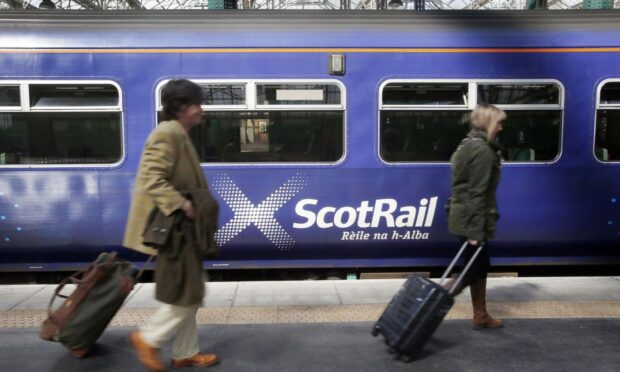ScotRail train engineers are to take part in a series of 24-hour walk-outs over the coming weeks – including during the COP26 climate change conference – in a move union chiefs claim will bring the railways to a “standstill”.
Unite the Union has confirmed its members will take action at sites including Perth in an ongoing row over pay.
Workers have already been taking part in industrial action short of a strike since September 24.
The action is separate to Sunday strikes involving conductors and ticket examiners, which has also threatened to disrupt services during COP26, when world leaders and international media will be descending on Glasgow.
But earlier on Monday, the RMT union threatened to ensure no trains will run during COP26 as staff are unhappy over proposed timetable changes.
When will the strikes take place?
In a statement issued on Monday, Unite says the days scheduled for 24-hour strike action are:
- Monday October 18-Tuesday October 19
- Monday November 1-Tuesday November 2
- Wednesday November 10-Thursday November 11
- Friday November 12-Saturday November 13
The action will affect a number of rail depots, offices and stations including Bathgate Depot, Corkerhill (Glasgow) Depot, Dalmuir, Glasgow Central, Glasgow Queen Street, Edinburgh Haymarket Depot, Edinburgh Waverley, Inverness Depot, Motherwell, Perth, Shields (Glasgow) Depot, and Yoker Depot.
Unite says the strikes will start at different times at the various locations.
A spokesperson told The Courier: “Our engineering members provide safety critical work and without this work being done the railway rolling stock will come to standstill.”
However, it is unclear how many services will be disrupted as a result.
Why are workers striking?
Abellio ScotRail members of Unite voted 78% in support of strike action in a 68.4% ballot turnout, while 92% backed industrial action short of a strike.
It comes as Unite claims ScotRail management have yet to put a pay offer to the union, and there has been “no movement” on several demands including the reinstatement of a rest day working agreement for about 250 workers.
Union bosses claim they have been left with “no choice” but to take action.
Pat McIlvogue, Unite industrial officer, said: “We want the Scottish public to know that we have exhausted the process.
“Now strike action will severely disrupt events and the COP26 climate change conference.
“The Scottish Government and Transport Scotland must urgently intervene.”
What is the government’s response?
Transport Scotland says talks are continuing with trade unions but highlights the “significant financial challenges” facing the Scottish Government.
A spokesperson said: “There are reasonable offers on the table which, through meaningful discussions about efficiencies and innovations, could lead to a pay rise.
“Any cancellations, as the result of industrial action, not only have the potential to undermine the recovery of our rail services but also impact on vital revenue streams from ticket sales.
“While we support the right of every worker and union to engage with their employers to seek a pay deal, COP26 is Scotland and Glasgow’s chance to showcase the key role we see for rail in our sustainable future on a world stage.”
A ScotRail spokesperson said: “We’re seeing customers gradually return to Scotland’s Railway, but the scale of the financial situation ScotRail is facing is stark.
“We will continue to engage with the rail trade unions to find an agreement on pay and conditions.
“To build a more sustainable and greener railway for the future and reduce the burden on the taxpayer, we need to change.
“All of us in the railway – management, staff, trade unions, suppliers, and government – need to work together to modernise the railway so that it is fit for the future.”
